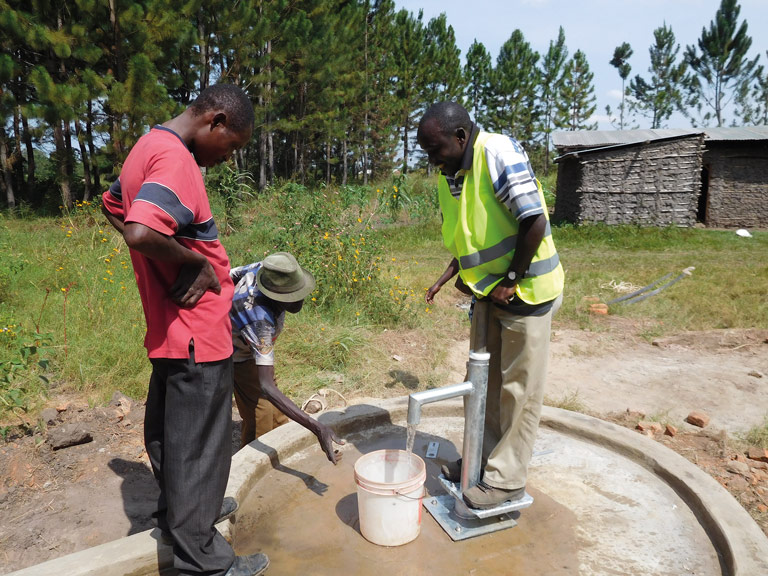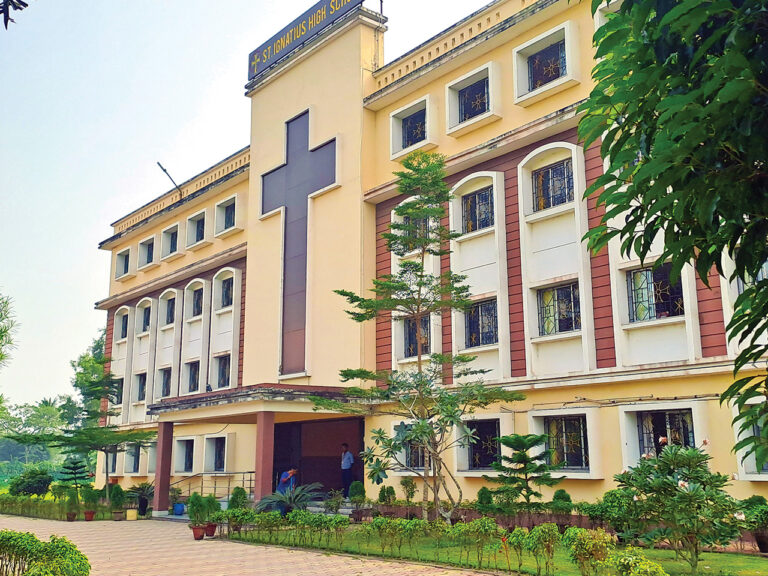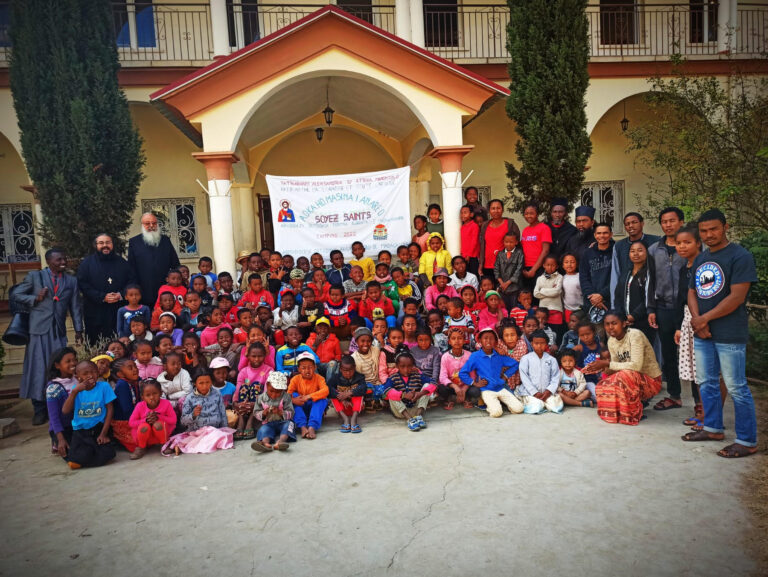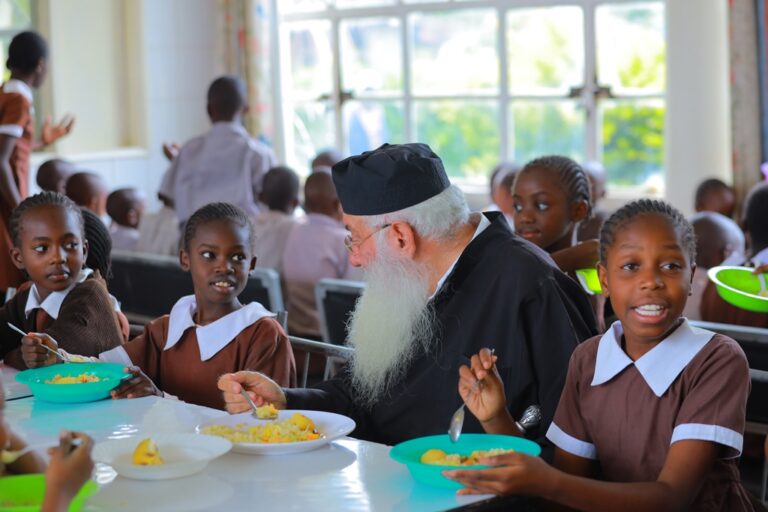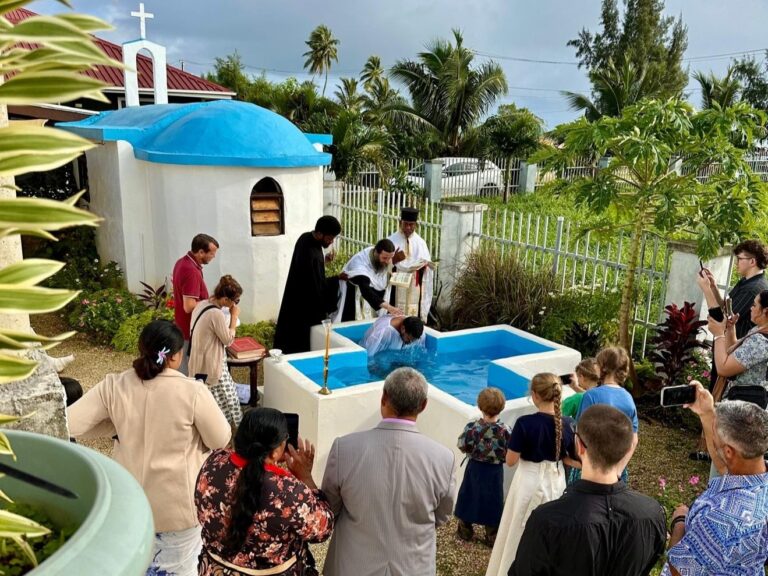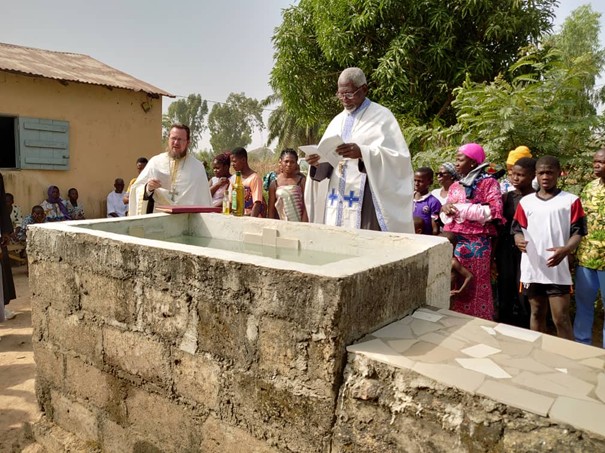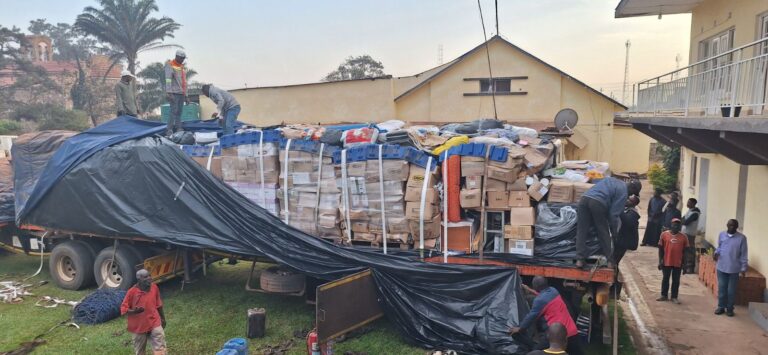Clean drinking water
The northern and western part of Tanzania, ecclesiastically under the jurisdiction of the Metropolis of Mwanza, has a geographical area of about 430,000 square kilometres, more than three Hellas. In this part there are some water resources such as Lake Victoria, Lake Malawi, Lake Rukwa, etc., as well as the rivers Kagera, Ngono, Mara, Simiou, etc. The villages or towns adjacent to these resources have access to water, easier or more difficult, although this water is not completely pure. The main problem, however, lies in those areas that are far from natural water resources and which, at the same time, are suffering from drought due to climate change, which has also affected the African continent. There, the lack of water is total, with all the consequences that this entails for people’s lives. The only recreation, and not a solution to the problem, is the occasional rains that fill up some puddles from which people draw dirty water, contaminated with parasites and microbes. When it doesn’t rain at all, the situation becomes tragic. Thus, the lives of the people living on the mainland unfold in this torment. Thirst, filth, disease, deaths make up the backdrop of this impasse. It is an open and bleeding wound, which shocks the hearts and consciences of all of us.
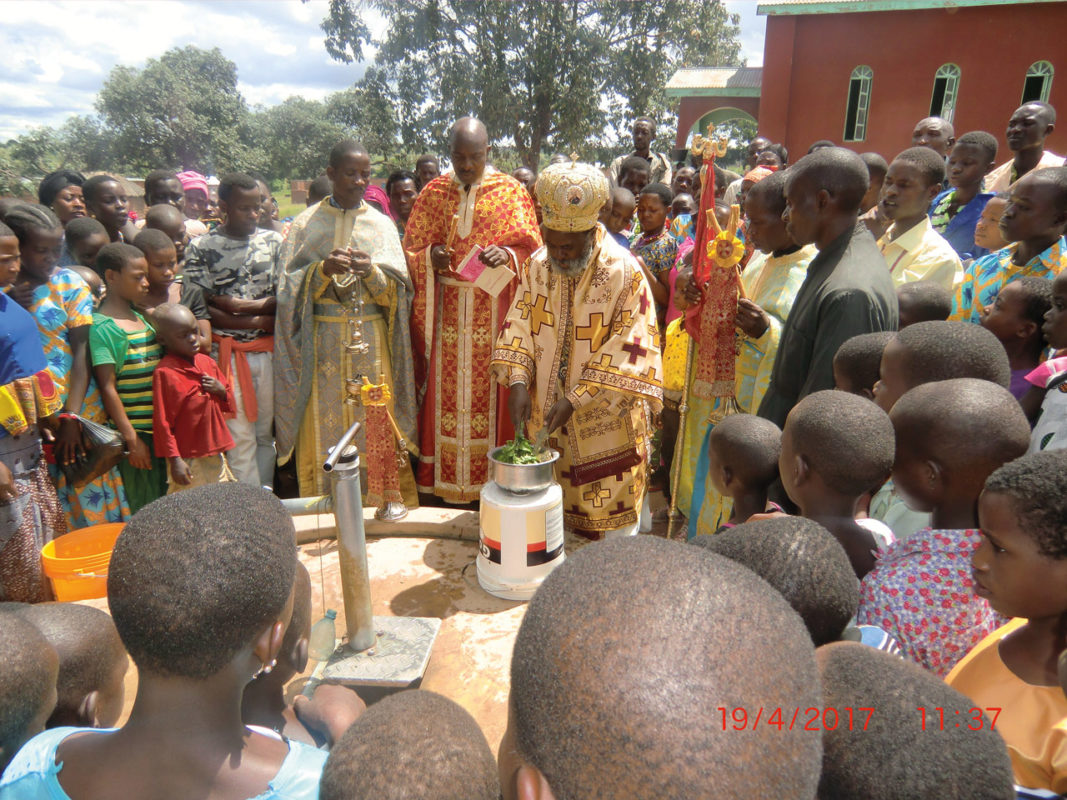
In this context, the program of providing clean and potable water of the I. Metropolis of Moanza started 3 years ago. With the help of the Orthodox Greek parish of St. Paul in Los Angeles, USA, we acquired a new drilling rig and other modern machinery and equipment. The goal was to provide solutions to this serious problem that is plaguing the people of Tanzania. The project staff is 6 young people, who were trained for this purpose for 2 months. We are looking for 2 more persons to be able to be trained at a higher level. If there are trained staff, the machine has the capacity to drill 24 wells a year. We have obtained a country-wide license for the drilling rig from the State of Tanzania and we are working with the Ministry of Water for laboratory testing of the water quality of the wells drilled. These are then recorded in the state’s general well inventory. We have a sincere desire for a dynamic contribution to the issue of well drilling. But there is no shortage of difficulties and challenges. For example, we need more complete training of our staff, good planning, continued funding, good roads for easier access to villages and awareness of the communities where the work is being done. All this means good cooperation with all stakeholders. We need the state to make an effort to open roads in areas where access is impossible. All these and other factors also shape the cost of a well.
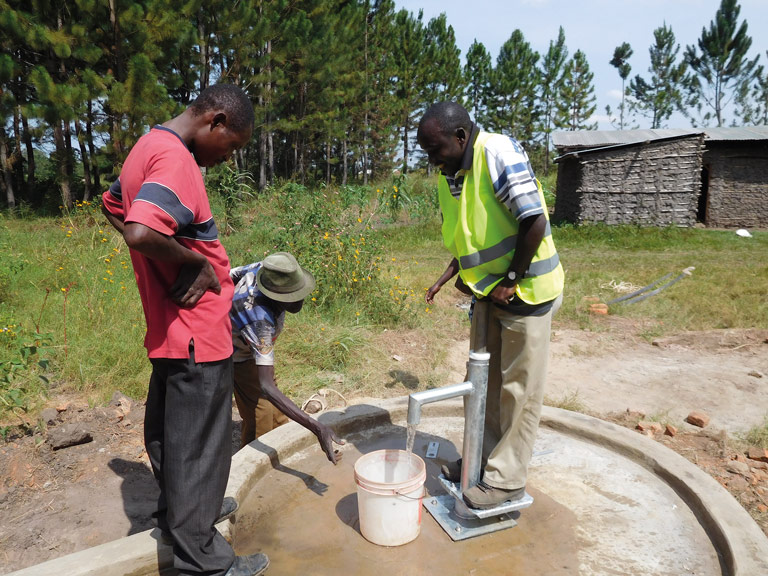
Despite all the difficulties, we want to bring the joy of clean and potable water to as many areas as possible. In this way, we also take the joy of implementing the commandment of love for our least brothers and sisters and, in addition, we give the witness and the mark of the Orthodox Church of Christ, which is interested in every human being and reaches out to them in a redemptive way, starting from their most tangible and urgent needs. In these 3 years, 30 wells have already been drilled that can serve about 100,000 inhabitants. It is good to continue. The machinery is there and it can, and we want it. We sincerely thank those who help us and those we work with. And we especially thank St. Paul’s Parish in Los Angeles, the State of Tanzania, the Orthodox Foreign Missionary Fraternity and others. With understanding, patience and cooperation, we hope to overcome the challenges. Water is essential for life. Clean and potable water is even more essential. May we be worthy to offer it to those who need it so much.
† Muanzas Hieronymos

